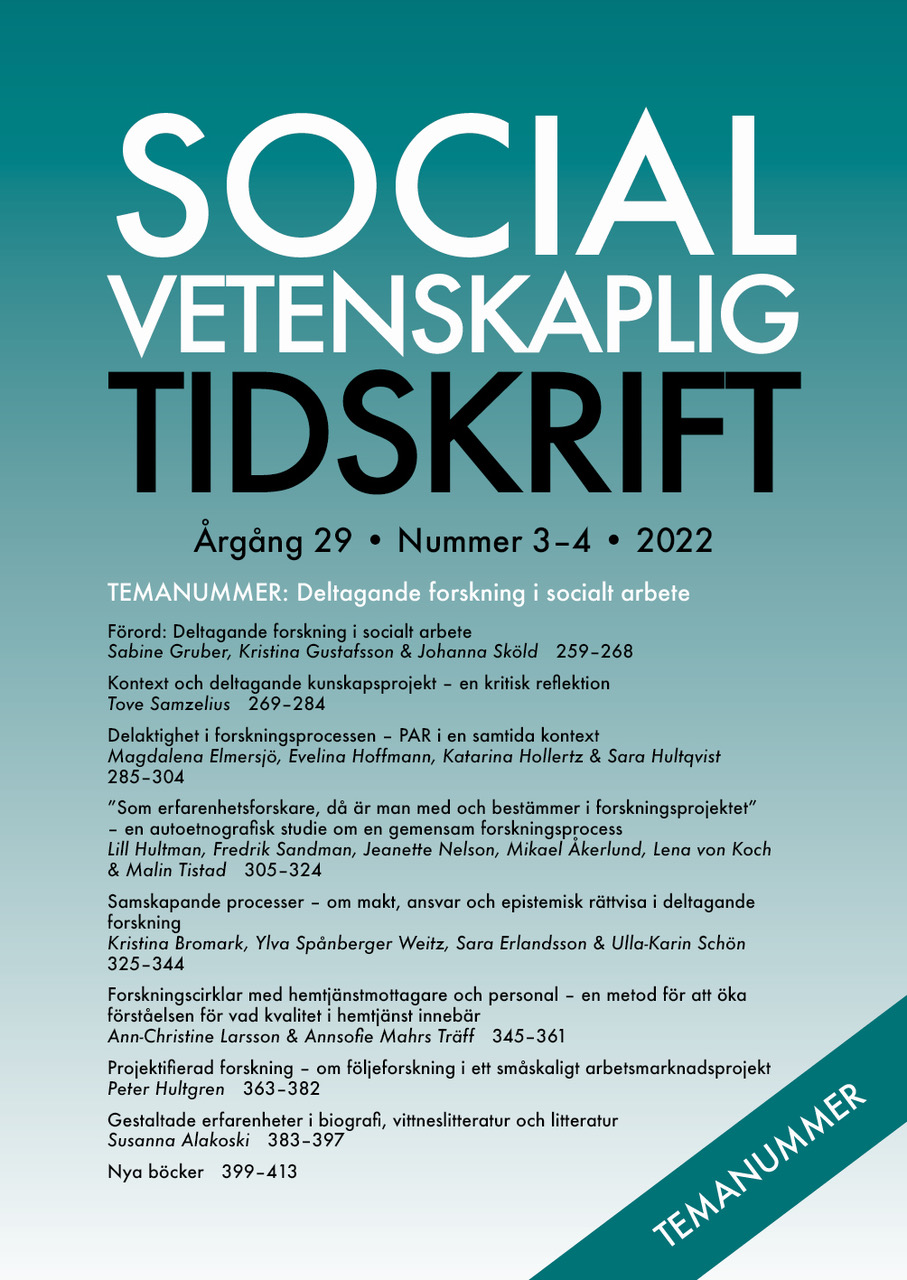Kontext och deltagande kunskapsprojekt
- en kritisk reflektion
DOI:
https://doi.org/10.3384/SVT.2022.29.3-4.4670Keywords:
participatory research, co-production, single mothers, welfare reform, timeAbstract
Based on 20 years of experience involving marginalized singles mothers in participatory knowledge projects, this article provides a personal and critical reflection on the importance of the contexts within which such projects develop. Through concrete examples of projects, developed during different historical periods and welfare regimes, the author illustrates how the political and economic context can create both opportunities and barriers for the participation of the disadvantaged groups and the grassroots organizations that represent them. Some of the tensions too as benefits that can arise when more radical self-organized grassroots groups collaborate with academic institutions are also highlighted. Finally, ethical issues regarding the ideals of commitment of marginalized groups within a welfare context where the time to participate is regulated and limited raises. Consequently, it is argued, there is a need for wider critical reflection and continuous dialogue about how the basic principles of more radical traditions, both in research and social work, can be adapted and incorporated in new ways, whilst also learning from past experiences.
Downloads
Published
How to Cite
Issue
Section
License

This work is licensed under a Creative Commons Attribution 4.0 International License.
Allt material i Socialvetenskaplig tidskrift publiceras sedan 2022 (Vol 28 Nr 2) med omedelbar öppen tillgång (open access), under Creative Commons-licensen CC BY 4.0. Upphovsrätten till innehållet tillhör respektive författare.
Allt innehåll i tidskriften är fritt tillgängligt utan kostnad och får fritt läsas, laddas ned, kopieras, delas, skrivas ut och länkas. När innehållet används måste författare, källa och licens anges. Författaren kan fritt göra sin publicerade text tillgänglig på institutionella och internetbaserade arkiv, exempelvis sitt lärosätes digitala arkiv eller andra tjänster för detta.
Inga publiceringsavgifter tas ut vid publicering i Socialvetenskaplig tidskrift.


